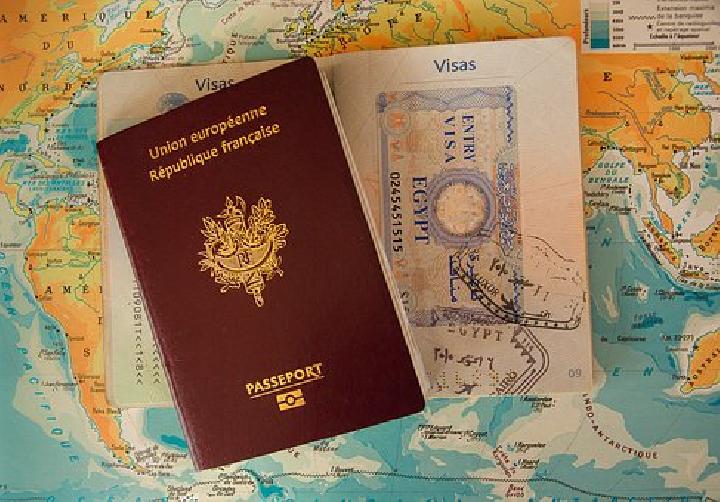Modernizing Agriculture in Indonesia: FAO's Earth Observation Data Revolution
Translator
Editor
30 April 2024 17:06 WIB

By: Rajendra Aryal, FAO Representative in Indonesia and Timor-Leste and Imam Machdi, Deputy Chief Statistician, BPS-Statistics Indonesia.
In the realm of agricultural modernization, envisioning a solution that accurately delineates crop distribution, growth stages, and yields is no longer a futuristic vision but a present reality in Indonesia. The collaborative efforts of the Food and Agriculture Organization of the United Nations (FAO), the Indonesian government, and a few other relevant partners are propelling this transformative shift.
At the forefront of this innovation is the national initiative, Indonesia One Rice Data, launched by the government of Indonesia in collaboration with FAO Indonesia under the FAO-EOSTAT project and the Economic and Social Commission for Asia and the Pacific (ESCAP). We aim to modernize the monitoring and quantification of rice production in Indonesia using state-of-the-art Earth Observation Data. The synergy among significant Indonesian institutions, including BPS-Statistics Indonesia, the National Research and Innovation Agency (BRIN), the Ministry of National Development Planning (Bappenas), the Ministry of Agriculture, and the Regional Hub on Big Data and Data Science for Asia and the Pacific hosted at the Politeknik Statistika STIS, underscores a unified commitment to leveraging technology for bolstering food security.
A pivotal aspect of this initiative is integrating satellite data from both Optical and Radar sensors, enriched with ground truth data on rice paddies collected by field enumerators. This meticulous approach ensures a comprehensive understanding of the rice crop's lifecycle across Indonesia's varied agricultural landscapes. The FAO-EOSTAT project is instrumental in supporting the Indonesia One Rice Data initiative in fostering the implementation of sophisticated machine learning algorithms. These algorithms are adept at identifying and characterizing the distinct phases of rice paddy growth, culminating in the production of monthly maps. These maps, detailed with information on planted areas, growth stages, and harvested areas, are a testament to the project's precision and technological advancement.
Ensuring the reliability of these maps involves rigorous validation protocols. Such protocols are crucial for affirming the accuracy of the data, thereby instilling confidence in the decision-making processes related to food production and security. This methodological rigor is essential in a country like Indonesia, where agriculture plays a pivotal role in the economy and the sustenance of its population.
The significance of these advancements extends beyond mere technological triumphs. They symbolize a strategic pivot towards data-driven agriculture, where accurate, timely, and granular data inform decisions. This shift is critical for Indonesia, a nation grappling with the dual challenges of natural disasters and the impacts of climate change. The capacity to swiftly detect agricultural anomalies, respond to climate-related crises and anticipate future changes is invaluable. It not only safeguards the environment but also ensures that any assistance can be promptly directed to affected areas, thereby enhancing the resilience of food systems.
Furthermore, the insights gained from understanding land cover, use, and crop types empower nations to tailor their agrifood systems to be more adaptable and robust. Strengthening preparedness for challenges such as droughts, pests, and climate shifts enhances food production and sustainability. These initiatives align with the FAO's goal of eradicating hunger and fostering sustainable development.
As we have moved into 2024, the implications of the Indonesia One Rice Data initiative, along with the FAO-EOSTAT project, are profound. Earth Observation data is proving to be not merely a tool for agricultural modernization, but also a catalyst for sustainable development. Through innovation and collaborative spirit, Indonesia is enhancing its food systems transformation and laying the groundwork for a resilient and prosperous future.
Looking forward, the FAO-EOSTAT project in Indonesia harbors the potential to inspire other countries in Asia and beyond to embrace similar solutions by taking a leadership role. It lays the foundation for developing specific applications tailored to agriculture and food security challenges. By expanding the project's reach, FAO and its partners will make significant strides in making agrifood systems more resilient and advancing towards the goal of Zero Hunger.
*) DISCLAIMER
Articles published in the “Your Views & Stories” section of en.tempo.co website are personal opinions written by third parties, and cannot be related or attributed to en.tempo.co’s official stance.























